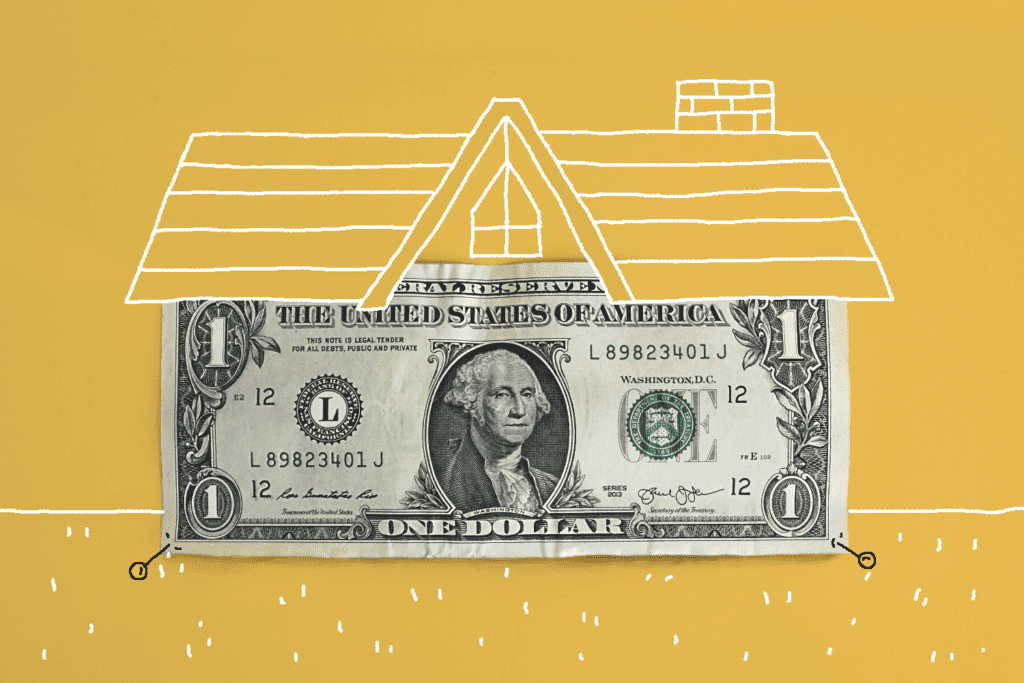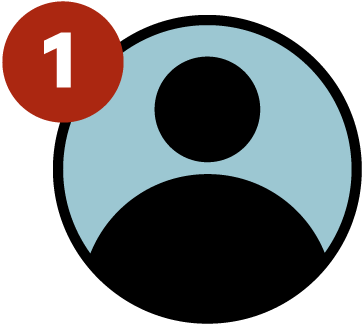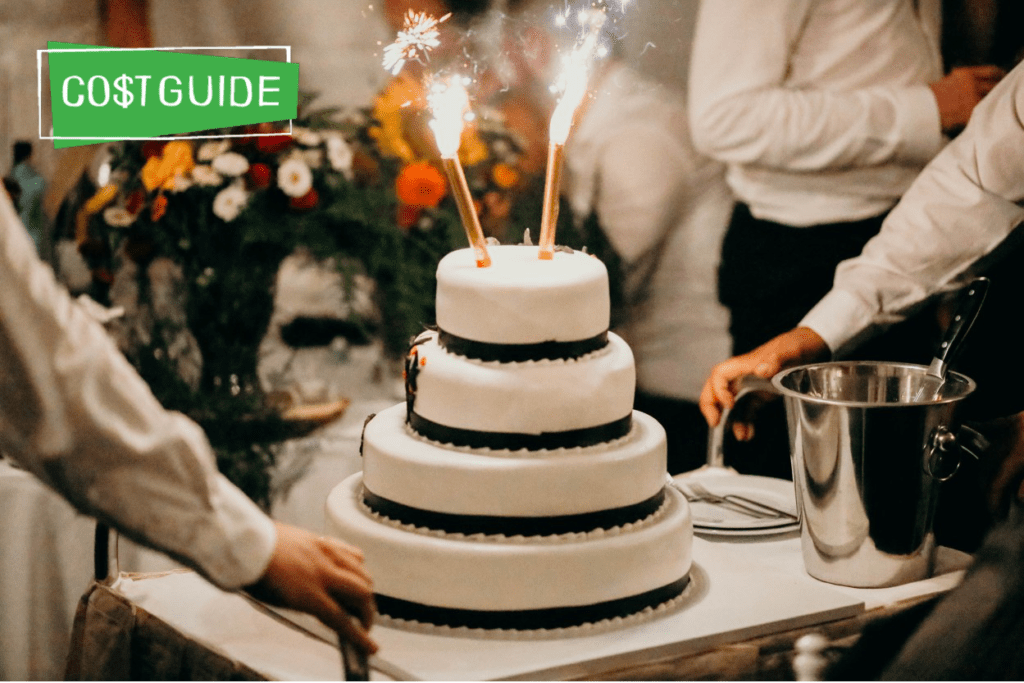
Buying a home is still very much an American dream, but coming up with a down payment can be a nightmare. The median cost of a down payment for single-family homes and condos hit an 18-year-high in 2017, rising to $20,000 (admittedly a comparatively small number if you live in coastal cities like San Francisco or New York). That, coupled with low inventory and inflated home prices, has left many student-loan-saddled Gen-Y couples putting off home-buying until an unspecified “later.”
But all is not lost. To get into the home-buying game, yes, you will have to save up for closing costs, loan origination fees, contingency fees and have an emergency cash reserve, which, yes, could enter 5 or 6-digit territory. But there is some good news. While rules have tightened up since the 2007 crash on credit and cash reserves, you may be able to get away with a lower down payment in this new market, even as low as 5, 3.5 or even 3 percent down (20% of the price of the home is common).
The key? Whipping your finances into shape, possibly getting a side hustle (or two) and building a rock-solid savings plan. Here are your next steps.
How Much Do You Really Need to Save?

While loan programs have lowered standards on down payments, with more than 60 percent of Americans putting down just 6 percent, to get the best rates, you’ll still need stellar credit, says Elysia Stobbe, a mortgage expert based in D.C. and author of How to Get Approved for the Best Mortgage Without Sticking a Fork in Your Eye.
“You’ll need to spend no more of 25 percent of your income on the mortgage, no more than 43 percent on total debt, though it’s better if it’s closer to 30 percent,” says Joy Liu, who heads trainer development at budget-planning company The Financial Gym.
It pays to check with a broker to find out whether you might qualify for a loan assistance program with a local or state housing authority. They vary state by state, but there are often grants, no-money-down mortgage programs and federal tax breaks for first-time buyers.
In New Jersey, for example, the state offers $10,000 in closing costs and down payment assistance for first-time home-buyers who qualify. “Rip off the Band-Aid sooner than rather later and see what you need to do,” says Stobbe. The answers might be more hopeful than you thought. “I just worked with someone who was able to put $4,000 down of her own money, $7,500 from a down-payment assistance grant and $5,200 for seller closing assistance. She’ll be celebrating the holidays in her new home.”
How can you figure out if you qualify? You could research online (NerdWallet has a great list of programs by state), but it might be easiest to work with a broker as soon as possible to see what you can qualify for, then work backward to fund it. (Find out more about what you’ll need to pre-qualify here.) [link to mortgage story]
What’s Your Timeframe?
According to the Down Payment Resource, one out of every three first-time homebuyers will take more than two years to fund their down payment, likely because of the need to pay off previous debt first.
If that’s you and your partner’s story, attack the bad debt now (i.e. the type you don’t get tax breaks on), so your debt-to-income can come down to less than 30 percent of your total credit, says Stobbe. This will also help your credit rating. Start by paying down the highest interest rate cards first. If you can, only use credit cards to make regular charges and then pay them off at the end of the month.
At the same time, if you haven’t already got at least six months’ of expenses sitting in the bank, put away money toward your emergency savings ASAP, says Liu.
If you have student loans, try to see if you qualify for a student loan erasure program. (Here’s a great list.) “There are great student loan forgiveness programs for teachers and public service workers,” says Stobbe. If not, hang on to these, and don’t worry about paying them off before buying a home since they can be tax deductible.
Once you’ve taken these steps, it’s time to calculate a timeline. To do so, using a down payment calculator tool for a rough estimate, or working with a broker for a real one, take the total amount you’re going for, along with three percent for closing and broker fees, and a 10 percent contingency fund, and divide it by the amount you can put away each month. That will give you a timeframe and number to shoot for each month, says Liu.
Best Ways to Save for Your Down Payment
Most people save by both decreasing their spending and finding ways to increase their income, says Liu.
Housing is the biggest cost, according to the Bureau of Labor statistics, and you can trim costs by downsizing for a year, moving further away, taking in a roommate, or posting your place on Airbnb and living elsewhere. “I’ve seen people move into their parents’ place for a year to save quickly,” says Dave Krichmar, a licensed mortgage banker in Texas.
Next up is transportation. See if you can negotiate down the rates for car insurance and/or work remotely, or find a new job that will let you save by avoiding commute expenses. While it might not seem like a big deal, if you’re already traveling by train and parking, this could save up to $500 a month, and just by making this simple change, you could have $12,000 in two years.
Then, trim away the smaller expenses, by looking at your spending habits, including coffee (do you need three per day or can you get by with two?), cable bills (renegotiate your package), phone bills (find out if there are better deals now), and unused subscriptions (cancel a few magazines). “While each might not be a lot, all together, they can add up,” says Liu.
Other ways people are increasing income include taking on a side gig on sites like Fiverr, providing homecare help on the side, substitute teaching or teaching a course at night, driving Uber or Lyft, selling stuff (on Etsy, eBay or auction apps), and creating an event at EventBrite to share knowledge about how to get into your industry and other insights.
While it can feel insurmountable, having a clear goal can motivate you to save. Put the total and your progress somewhere you can see it, and celebrate all the little victories along the way, says Liu.
Make Room in Your Budget
Another creative way to save? Pretend you only make 50 percent of your income and put the rest away, or live on only one of your incomes and put the other away. “This is good practice for the future should your mortgage end up being more than you’re paying now, or you decide to live off of one income for a while if you have a child,” says Liu.
For a little more hand-holding help on how to save for a home fast, there are tons of great sites to geek out on from couples who’ve managed to save money in shortened time-frames; the list includes Money Life Wax and Marriage Kids And Money. Steal their budgeting tricks and then make a serious commitment to follow them through.
Set Up Automated Savings
Forced savings, or savings that are automatically deducted from your account are great, since you don’t have to think about them. “Automating: love it,” says Liu. “It is totally against human nature to want to save money. Any way you can trick yourself into saving money the better.”
And these funds can seriously add up over time. Even just $400 a month channeled out of both of your paychecks can equal almost $40,000 in four years, which is likely enough for a 10 percent down payment and closing costs on a $300,000 home. While it may feel like a pinch if you are just starting out, the sight of your blossoming bank account will feel way better than drowning your lack-of-cash sorrows in weekly craft brews at pub trivia night.
Don’t have the discipline to keep your hands off your bank savings account? Apps such as Digit and Stash use algorithms to determine the amounts to pull from your account so you gradually build up savings over time. These are great if you find you’re always transferring from your bank’s savings right into checking.
Another idea? Make it a rule to “automatically deduct” the money you’d pay in unnecessary purchases like dinners out or home décor into a savings fund every time you pass them up. You’d be surprised how quickly these extras add up.
One easy way to see quick progress: every year when you get your tax refund, stash it away. And while you’re at it, make sure to talk to your accountant to figure out the best way to capitalize on any tax credits your new marriage status could afford you, then funnel these away as if you’ve never seen them too.
Bank Any Windfalls
When coming up with your loan amount, banks like to see that you’ve been responsible in earning and saving the income yourself, however, you are allowed gifts from parents, friends, and relatives. They will just need to sign a document saying that they’ve given you the money outright, with no expectation that you’ll pay it back.
As for inheritance, yes, you can use an inheritance to pay for a down payment. Again, you’ll just need documents to confirm the inheritance, and when it was distributed to you as the beneficiary.
And make sure to keep the money in the same account once you’ve originated the loan, since moving it to another account could mess with your loan, advises Stobbe.
Maintain an Emergency Fund Always
One place you shouldn’t steal from to fund your down payment: your emergency savings fund.
You always want to have at least six month’s living expenses saved should an emergency occur, especially if you’re planning on buying a home, says Liu. It might seem like the monthly mortgage estimate next to the home values on Trulia or Zillow is often lower than the cost of your rent, but there are a lot of extra costs associated with homeownership that aren’t always factored in, such as lawn care, roof and foundation maintenance, painting, heat and water, and other unexpected extras.
Life is uncertain, and many people find that the moment they need the funds the most is when banks are least willing to loan them, says Stobbe. Should you lose your job, or become disabled for a period of time, even if you’ve paid your mortgage on time each month or even thrown in an extra payment at times, a bank may not be willing to let you coast for more than three months, especially if you’ve built up a ton of equity or there’s an economic downturn and suddenly, everyone’s selling their home (Side note: This fascinating book, Missed Fortune, says that during economic downturns, banks often target the homes that have more equity built up to foreclose on, rather than the ones with less, when making the call on who to come down on for missed payments. It’s a cruel world.).
Having an emergency fund allows you to respond and act during economically uncertain times, rather than having to react, and worst-case, have your home—and all the equity you’ve built up—foreclosed on.
One Final Way to Save: Reconsider the Neighborhood
Save up for a home in 6 months or less? Yes, it can be done. One big way to cut back? Rethink your desired neighborhood. According to Realtor.com, many millennials are finding that they can buy in their second-choice neighborhoods, which may be more affordable. Don’t forget to look at what your annual property taxes will be. You could save thousands a year depending on where you decide to buy. This chart looks at property taxes by state, using data from 2018.
Worst Mistakes Couples Make
“Not being on the same page as a couple,” says Stobbe. “Every once in a while, one person will have a credit card that the other one doesn’t know about it. Come clean. Everybody’s going to find out. All of that stuff is on your credit report. Every relationship is a blend of different goals, and communication and compromise are always needed, but if both people are not on the same page and can’t come to an agreement about a plan to spend and save, that’s going to be a problem.”























